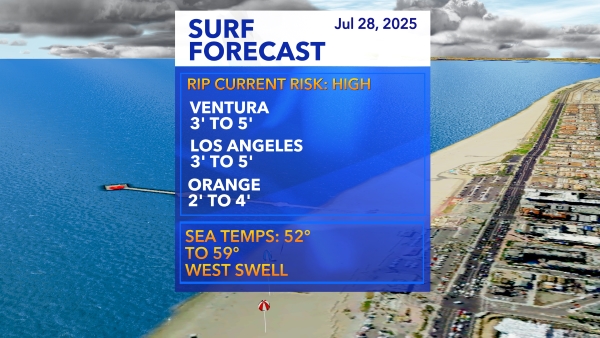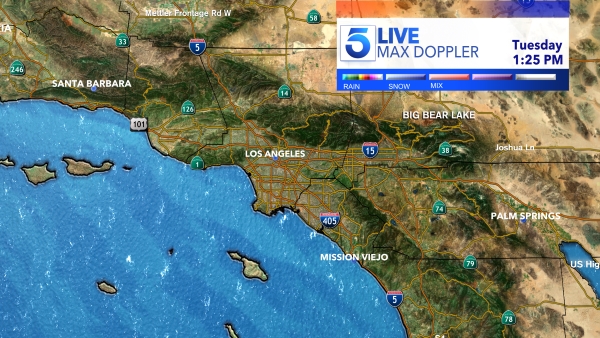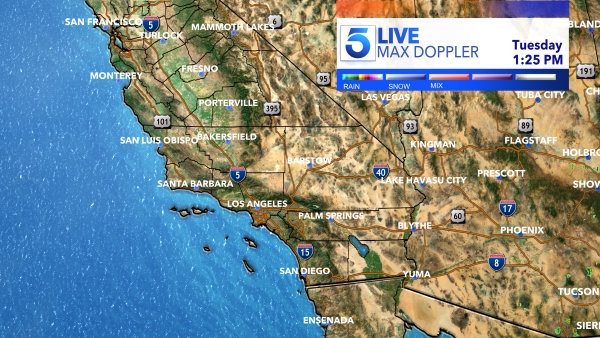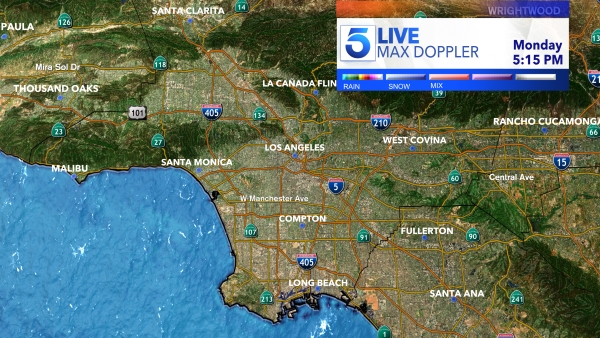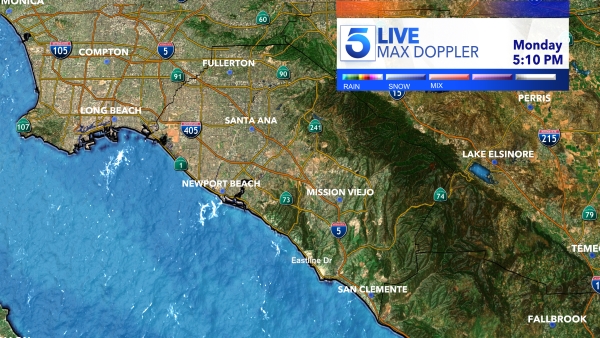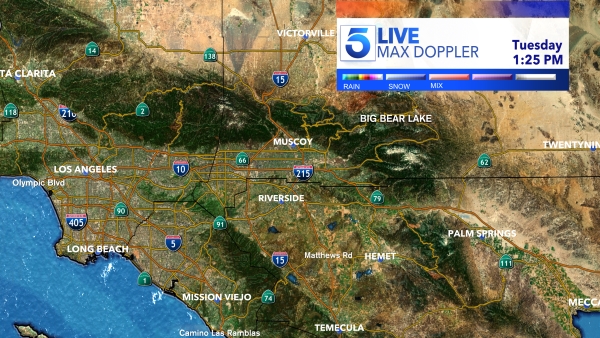Most of the thousands of people who fled a raging California wildfire in the mountains north of Santa Barbara were told they could return home Tuesday as an approaching storm offered hope the flames would be doused.
About 4,000 of the nearly 5,500 evacuees were affected when authorities reduced the size of the evacuation zone. But around 10:30 p.m., a separate evacuation warning was issued for potential debris flows in the area below the fire.
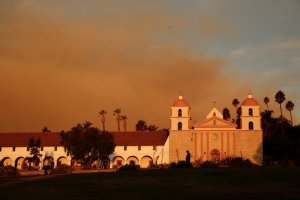
The blaze had blackened 4,330 acres — or more than 6.5 square miles — of the rugged Santa Ynez Mountains, but most of that acreage was scorched in its first hours Monday.
The fire was 10% contained by Tuesday evening and officials said about 2,400 homes and other buildings remained threatened but as of Tuesday evening, no homes were damaged and no injuries were reported.
Fire commanders described a fierce battle that saved homes as the blaze consumed brush in an area that hadn’t burned in 29 years.
“We’ve had winds move up slope, down slope, across the slope,” Santa Barbara County fire Battalion Chief Anthony Stornetta said.
An infamous 1990 wildfire in the same area destroyed more than 400 homes.
“It’s just a hard, difficult piece of country to fight fire in and the weather is the most extreme anywhere around,” said Jim Harris, Los Padres National Forest fire chief.
Rudy Gruber, 79, watched the smoke and flames from the top of a hill near his house in Santa Barbara.
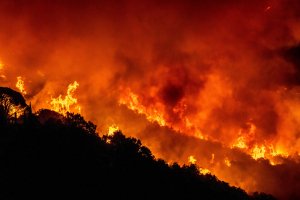
Despite orders to evacuate, he said he decided not to leave because he didn’t think the fire would cross a canyon to his home. Plus, it’d be tough to move his 50-pound tortoise, Amstel.
Even so, he’s been prepared for about a year, packing photo albums, computers and a carrier for his cat Scooter.
Gruber, who’s lived in the area since 1976, was facing his fifth fire but said he’s only evacuated once, when he saw smoke in his neighborhood in 1978. He didn’t see any this time, so he decided to stay put.
“We’re better prepared than we used to be,” Gruber said. “We’ve gone through it so many times now.”
Helicopters dropped water on the fire during the night, and daylight allowed air tankers to drop long strips of fire retardant to box in the flames.
The fire began in Los Padres National Forest as winds gusted to 30 mph and higher.
Miryam Garcia, 21, and her mother, Norma Ramos, 47, fled their home as flames approached.
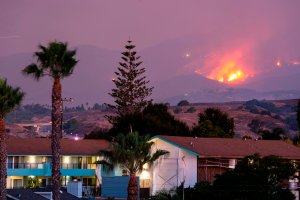
“I was just kind of praying that it didn’t get to our house,” Garcia said.
She and her mother stayed overnight with friends and then went to a Red Cross shelter at a community center in Goleta, west of Santa Barbara.
Red Cross official Tony Briggs said 34 people stayed overnight at the shelter, where face masks were being handed out.
Fire officials said as much as an inch of rain was expected to hit the area by midnight.
The possible arrival of rain also posed hazards, ranging from shifting winds to debris flows from steep mountainsides.
Gruber said he’s going to visit cousins in Orange County for Thanksgiving and isn’t worried about his house.
“I’m counting on the rain to kind of snuff“ out the fire, he said.
The dangerous cycle of fire and flood is a raw memory for many others in the region.
In January 2018, a downpour on burned slopes just east of Santa Barbara unleashed massive debris flows that devastated Montecito, killing 23 people and destroying homes.
SBCC ALERT – Out of an abundance of caution and due to the ongoing Cave Fire, all SBCC Campuses will be closed on 11/26 and 11/27. This includes our Main Campus (Cliff Drive), Wake Campus and Schott Campus. All classes are cancelled for these two days. pic.twitter.com/SOrJrOCsV2
— SB City College (@SantaBarbaraCC) November 26, 2019
#CaveFire Update: #Hwy154 remains CLOSED until further notice so expect more holiday traffic along #Hwy101. Use extra caution & watch out for emergency vehicles. Get our #QuickMap app for latest road conditions statewide. Safe travels, everyone.
— Caltrans District 5 (@CaltransD5) November 26, 2019
